


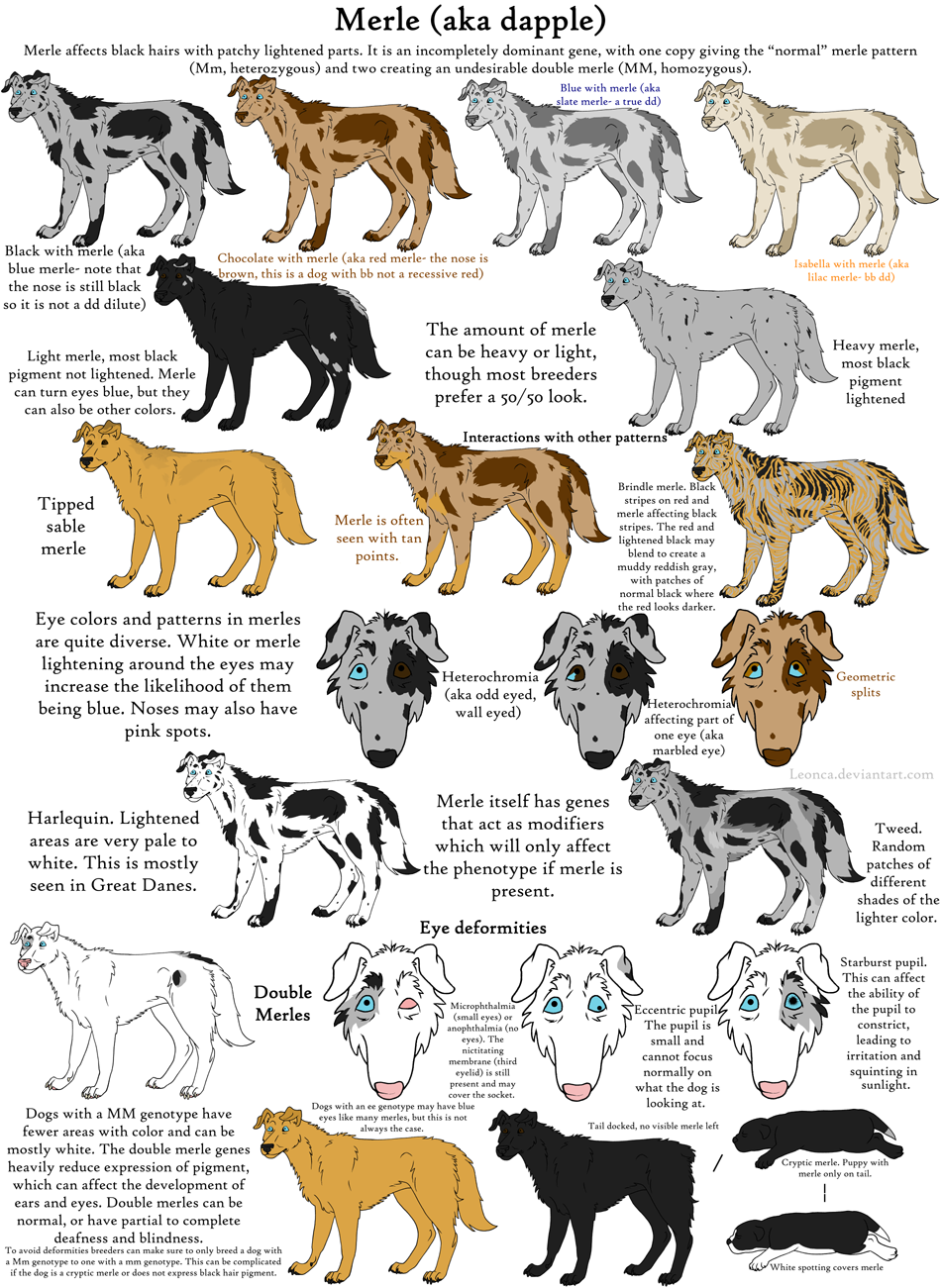
Click to view the full-size image
Merle is a dilution gene; that is, it lightens whatever the coat color would otherwise have been. The lightning is not spread evenly over the coat but leaves patches of undiluted color scattered over the dog’s body. Also, the lightning seems to work primarily on the black pigment in the coat. Note that “black” as used here, includes liver or chocolate. Merle is a distinguishing marking of several breeds. The merle gene also plays a part in producing harlequin. The most recognizable is the blue or red merle, but chocolate merle is also possible (see photos below).
Merle refers to a pattern in the coat and not consider a color as such.
A merle has a solid base color (usually red/brown or black) with lighter blue/gray or reddish patches, which give them a mottled or uneven speckled-looking effect.
Although most breeds that have merle coats also typically have white markings (such as around the neck, under the belly, and so on), and can often also have tan points (typically between the white and the darker parts of the coat), these are separate colors from the merle; some dogs do appear completely merle with no white or tan markings.
The Merle gene can also alter other colors and patterns besides the usual red or black. These combinations such as Brindle Merle or Liver Merle.
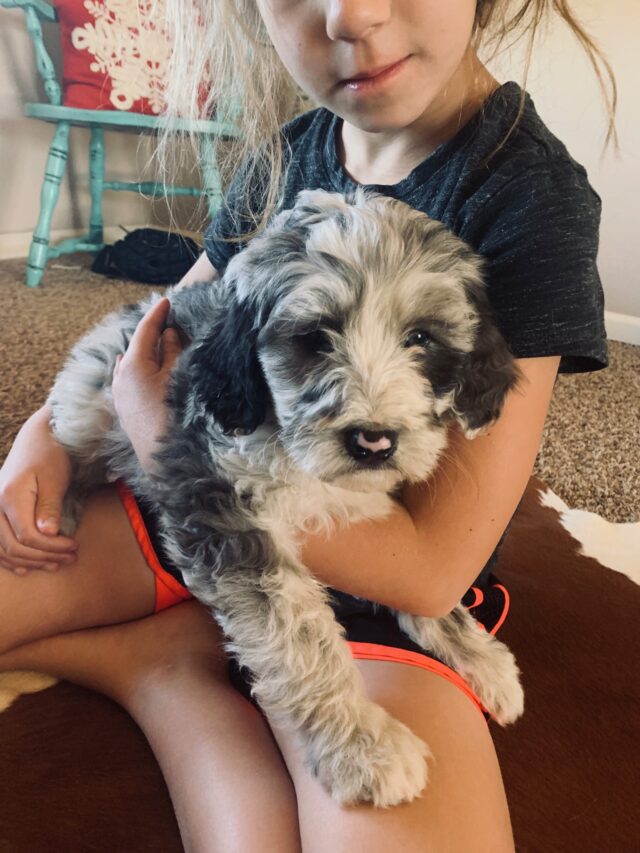
Blue Merle Aussiedoodle Labradoodle Mix Puppy – Dreamydoodles.com
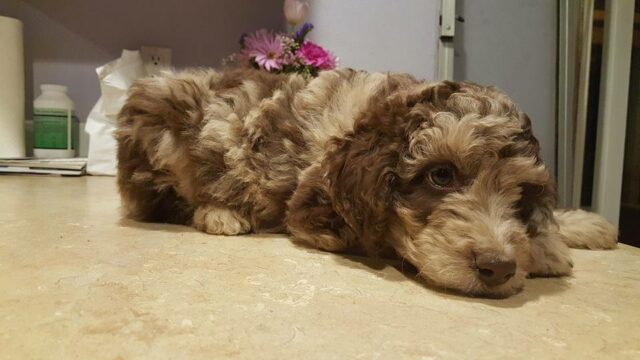
Aussiedoodle – Red Merle
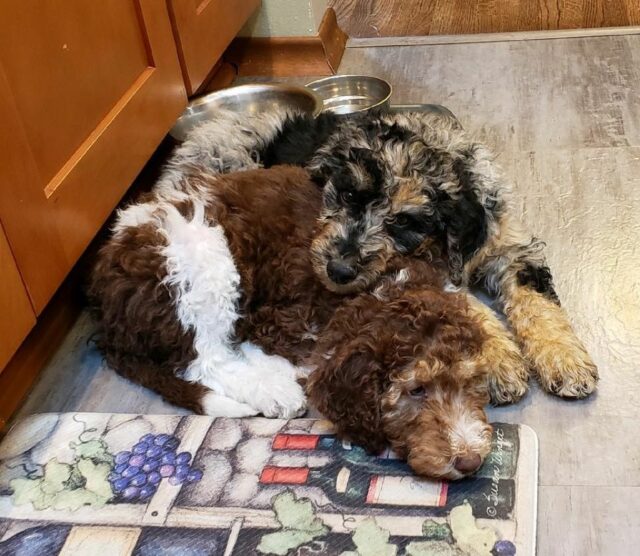
Blue Merle Aussiedoodle Puppy and Chocolate and White Parti Phantom Siblings
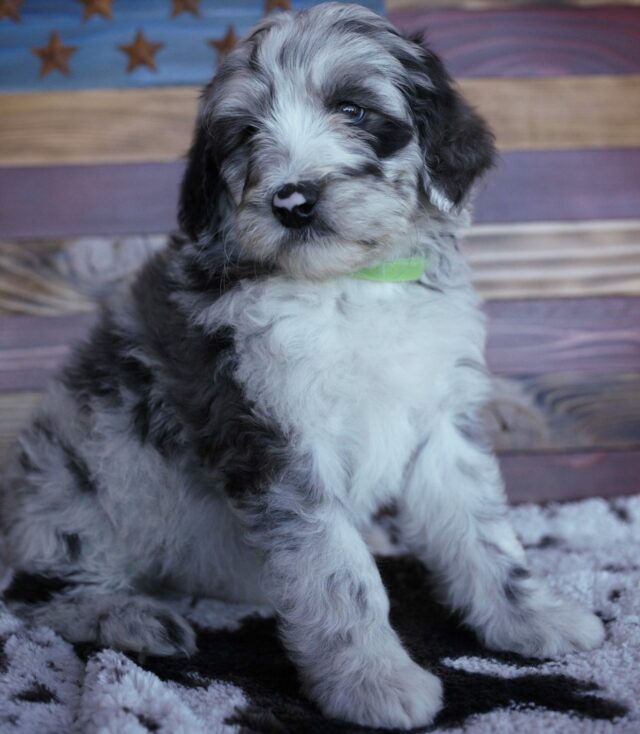
Blue Merle Aussiedoodle Labradoodle Mix Puppy – Dreamydoodles.com
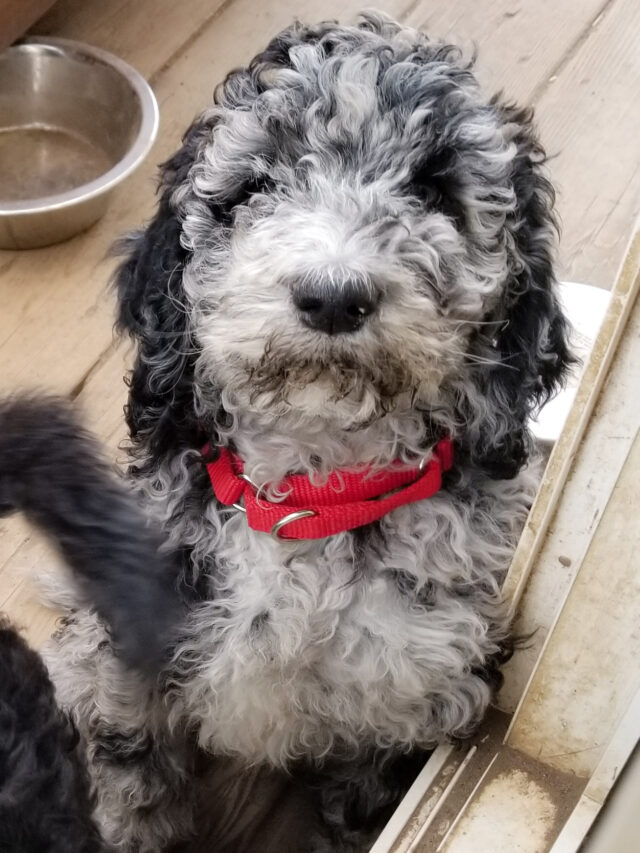
Titus – Blue Merle Male
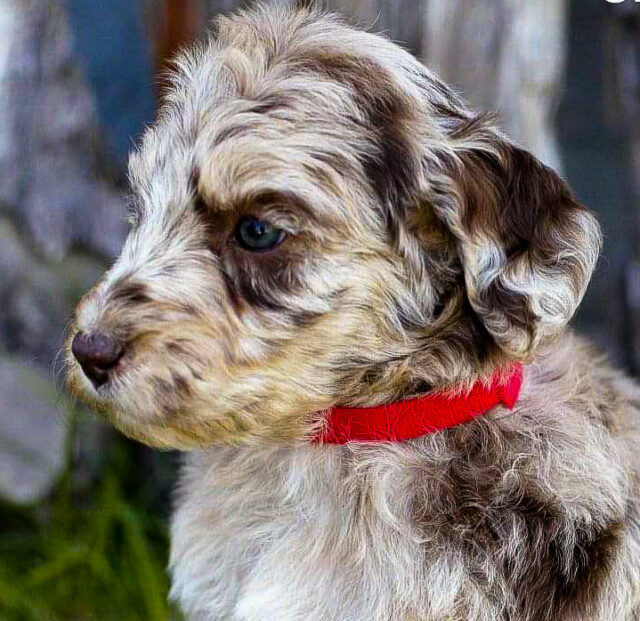
Red Merle Female Aussiedoodles
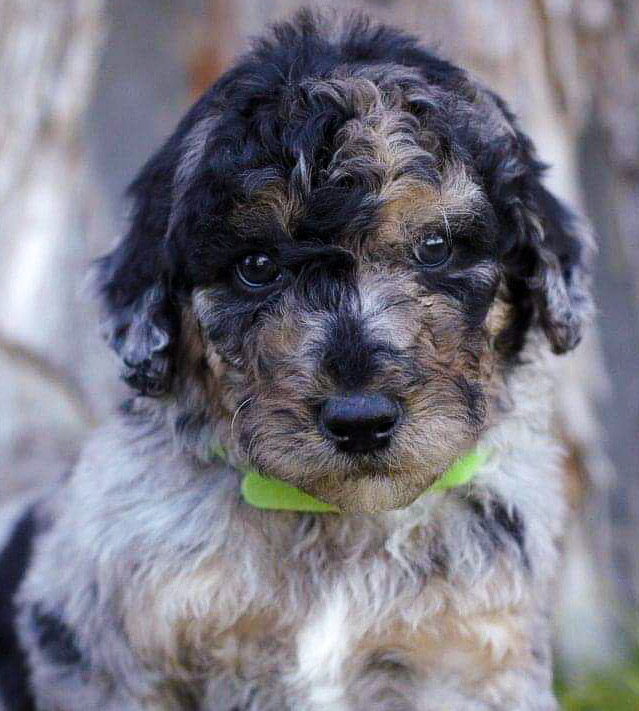
Blue Merle Aussiedoodle
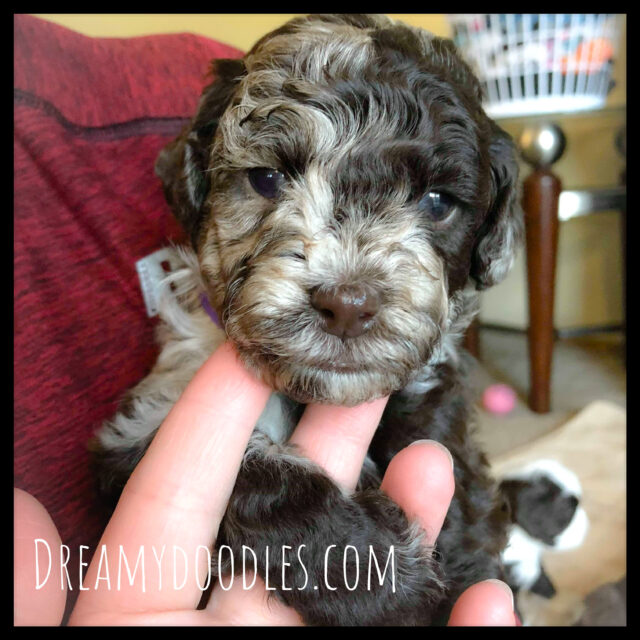
Chocolate Merle Mini
In addition to altering the base coat color, merle can also modify the eye color and coloring on their nose and paw pads.
The merle gene modifies the dark pigment in the eyes, occasionally changing dark eyes to blue, or part of the eye to be colored blue. Since merle causes random modifications, however, both dark-eyed, blue-eyed, and odd-colored eyes are possible. Color on paw pads and nose may be mottled pink and black.
Double Merle (Homozygous Merle) Merle is a heterozygote of an incompletely dominant gene. is the common term for a dog with two copies of the Merle gene. Double Merles are a result of bad breeding practices and happen when a merle dog is bred to another merle dog.
Sadly, when two merle dogs are mated together, on average, one-quarter of their puppies will be “double merles,” and double merles have a much higher risk of being blind and/or deaf.
So, merle dogs have more health problems?
No, a merle dog is just like any other dog; only the double merle dogs have this increased risk of problems with their eyes and ears. As long as you’re getting your merle dog from a responsible and educated breeder, this should be a non-issue for your dog.
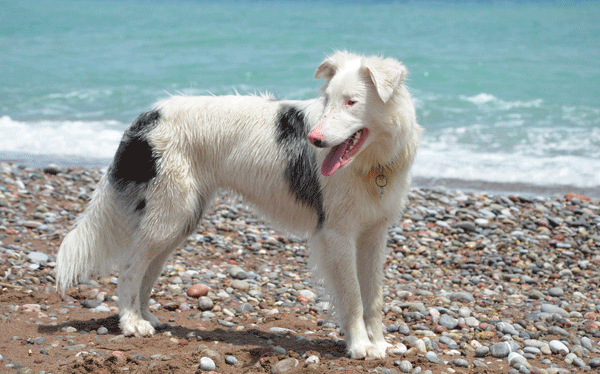
double-merle-collie
How do you know if you have double merle?
Double merles have large amounts of white in their coat, and deafness and eye abnormalities are common. All merles may have blue or partially blue eyes and pink or pink noses.
What is a Cryptic Merle?
Merle can be entirely hidden by a recessive red, as recessive red dogs can’t make eumelanin pigment, and merle only affects eumelanin; this is called a cryptic merle – and still genetically a merle dog they just have very little or no apparent merling effects. These dogs can appear to be non-merle.
This is also why it’s so important for dog breeders to color test any of their solid-colored dogs who have a merle parent, especially if they planned on breeding this dog to a merle dog because they could be a cryptic merle, and if bred to another merle, may produce double merle puppies.
This document is research in progress and through experience from breeding merles. Some of the information was obtained from the web.
https://www.petful.com/pet-health/the-lethal-white-double-merle-gene-decoded/